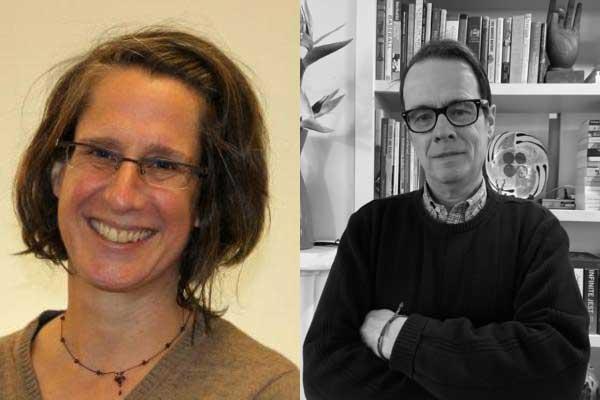
Inaugural lectures celebrate Arts and Humanities faculty who have been promoted to the rank of professor. We are particularly excited to relaunch the lecture series after an extensive pandemic-related pause. All lectures are held in the Faculty Club ABCD Rooms from 4-6 p.m. and are preceded by a reception and followed by Q&A and discussion. All lectures are free and open to the public and will also be live streamed.
The first Inaugural Lecture of the 21/22 Season will be a conversation between Beth Hewitt from English and Greg Anderson from History.
Reception will begin at 4 and the Inaugural Lecture will begin at 4:30.
The Arts and Humanities Inaugural Lecture Series is sponsored by The Humanities Collaboratory and The College of Arts and Sciences.
Elizabeth Hewitt, "Managing Time in a Plurality of Worlds"
Abstract: In the summer of 1787, a group of white men crafted a document designed to manage the sprawling size of a new nation and to establish a framework to provide for its perpetuity. This took time: twelve months from the beginning of the convention to ratification. And in the 233 years since, it has been amended and reinterpreted repeatedly. Yet it is enshrined as timeless. Why? To pursue this question, I turn to early US literary history and to a body of work that speculates on alternative Americas: poems and fictions that portray the nation in a distant future, or that discover other and better lands, or that turn to the past to reimagine alternative futures.
Greg Anderson, "Life in a Pluriverse of Many Different Worlds"
Abstract: The “one world” metaphysical foundations of our global capitalist order are now being vigorously challenged by a diverse range of constituencies, including Indigenous communities, ecological activists, and an ever-growing cross-disciplinary alliance of academics. Together these various critics encourage us to take seriously the idea that humans have always lived in a pluriverse of many different worlds, not in a universe of just one. For some years now, my own work has been exploring the far-reaching implications of this radical idea. In essence, it tries to show how the practice of a novel “pluriversal history” can support ongoing efforts to critique the “one world” world of capitalist modernity and enact more humane, more ecologically responsible alternatives.
